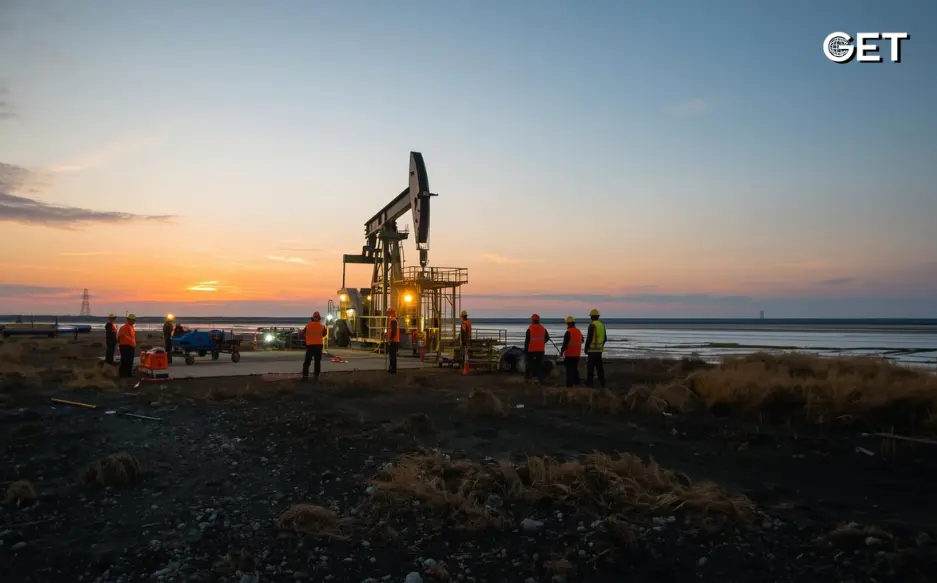
The oil and gas industry functions in highly volatile environments, making procurement and supply chain management an especially challenging process. The fluctuating oil and gas prices and the current geopolitical instability ushered in by several factors, such as the ongoing Ukraine-Russia war, have forced oil and gas companies to re-evaluate their procurement and supply chain management best practices, costs, and techniques. While the adoption of these best practices varies from geography to geography, most players in the industry are adopting advanced technologies, collaborative supplier relationship management, optimised inventory management, and so on to reduce costs and improve efficiencies and customer service.
Harvard Business Review says that purchased services and products account for more than 50 percent of the total costs for an average oil and gas company, signifying that even if companies reduce their purchase costs by 5%, they can significantly improve their profit margins. They can achieve this by adopting best procurement and supply chain practices through better materials and supplier relationship management, supply chain market intelligence, supply chain talent, and technology.
Here, in this article, we look at some ways in which oil and gas companies can improve their procurement and supply chain best practices.
Simply put, this refers to the process of collating real-time data and analyzing the information to gain insights into the current market and future trends. The information also helps in strategy adoption and implementation for both current and future sourcing of materials. Further, it also enables oil and gas companies to anticipate changes in the market and plan and deal with procurement and supply chain challenges, which can manifest in the form of constrained capacity, volatile markets, and infrastructure. Accordingly, they can determine their best sourcing partners, the best price to pay, and the targets and benchmarks to follow in order to achieve a competitive edge in the market.
The oil and gas industry is greatly dependent on suppliers to source products and equipment that are crucial to their operations. All this adds to their supply chain management risk, making it mandatory for them to adopt a method of supplier benchmarking. This they can achieve by recording and measuring the performance and robustness of the contractors they employ for various product and spend categories and constantly engaging with them to ensure they meet the necessary obligations for safety, equipment, training, and other regulatory compliance.
Oil and gas companies are increasingly seen as adopting advanced technologies to extract oil; however, there is an urgent need to consider technology adoption to strengthen supply chain and procurement systems and achieve additional value. These supply chain solutions are finding use in forecasting demand, inventory and contractor management, and e-procurement. These cutting-edge solutions can revolutionize procurement and supply chain management in the oil and gas industry, enabling companies to achieve more transparent and accountable supply chains at each rung of the value chain.
Even the best-in-class technology cannot sustain procurement and supply chain performance if it is not supported by the right people at the right time. As is the case with all other industries, oil and gas companies have to deal with a shortage of talent emerging from an ageing workforce and an increasing shortage of skills. It is therefore important for them to effectively recruit and continuously train their talent in crucial procurement and supply chain functions, and perhaps even invest in industry-academia partnership to nurture and grow supply chain talent.
Also Read: Challenges, Opportunities, and Solutions in Oil and Gas Exploration and Production
In a highly competitive arena, it is important for oil and gas companies to improve their procurement and supply chain practices and add transparency and accountability at each rung of the value chain. As stated above, even a 5% reduction in purchase costs can lead to significant savings, and more so at a time when oil and gas prices are extremely volatile.
While technology adoption and decision-making based on real-time data and market intelligence can greatly strengthen the supply chain, there is a need for oil and gas companies to recruit and constantly train their human resources while also giving them enough opportunity to grow their careers.
With this said, the companies would also benefit from identifying the associated costs at each rung of the supply chain for each product category and accordingly implementing appropriate interventions, such as seeking out new suppliers, changing specifications, or even altering contract terms as necessary.
Secondly, they can also build custom-fit procurement processes that help to engage with suppliers earlier in the process and ensure better clarity in the operations. Third, it is equally crucial to manage risks across the entire spending portfolio, proactively manage the supply base, and ensure sustainability.
In sum, effective implementation of best practices in procurement and supply chain management is the way forward for oil and gas companies to reduce their costs and optimise their business activities.
Also Read: Top 10 Oil and gas Contracting Companies in Abu Dhabi

By Get global | January 20, 2026
In 2026, the oil and gas landscape is no longer just about “steel and soil”. It’s about data, decarbonization, and digital fluency. For professionals in the upstream oil and gas sector and beyond, the career ladder has been replaced by a high-tech elevator and technical training courses are the floor […]

By Get global | January 15, 2026

By Get global | January 9, 2026

By Get global | January 2, 2026

By Get global | December 23, 2025
Introduction to the Oil and Gas Industry When individuals think of the “oil and gas industry,” the most common associations would probably be drilling rigs, offshore platforms, or harsh working conditions. And to some extent, these are indeed the case. But in the end, the industry is still much larger […]